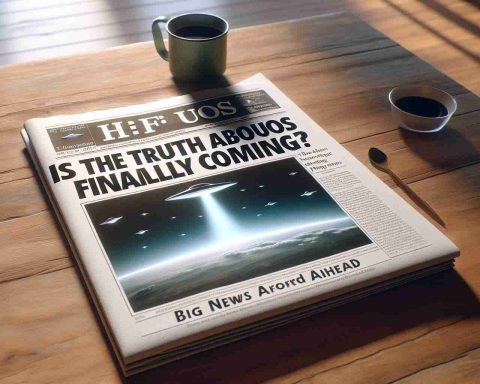Groundbreaking Quantum Encryption Project Launches
A new era of communication security is on the horizon with the initiation of QKD-GEO, the world’s first quantum key distribution system operating from a geostationary orbit. This ambitious project is backed by the Spanish government through the PERTE Aeroespacial initiative, aiming to create unbreakable encryption keys for ground-to-orbit communication and protecting against potential quantum threats.
The innovative system utilizes the unique properties of quantum mechanics to safeguard data integrity during transmission. Unlike traditional fiber-optic systems, which are limited by distance, this geostationary satellite system is designed to offer uninterrupted coverage across entire continents without suffering from signal loss. Key components of QKD-GEO include a specialized quantum payload on the satellite and a comprehensive network of ground stations for secure operations.
With a budget allocated at €103.5 million (approximately $127.56 million USD), this initiative will begin field testing along a 140-km atmospheric link between the islands of La Palma and Tenerife. Thales Alenia Space spearheads a consortium made up of various Spanish and European firms, with Hispasat leading the mission design and strategic planning.
This pioneering effort aligns with the European Commission’s EuroQCI program, which seeks to implement a network of quantum communication nodes across Europe, marking a major step forward in secure communications.
Broadening Horizons: The Societal and Environmental Implications of Quantum Encryption
The launch of the QKD-GEO project not only heralds a significant advancement in communication security but also carries substantial implications for society, culture, and the global economy. As nations grapple with increasingly sophisticated cyber threats, the establishment of unbreakable encryption through quantum key distribution could redefine standards of privacy and security on a global scale. Companies and individuals may soon expect not just improved security in their communications, but also a newfound resilience against data breaches, fostering greater trust in digital platforms.
Moreover, the economic impact could be profound. As this technology evolves, it may spur innovation across sectors reliant on secure communications, including finance, healthcare, and government. The potential for quantum encryption to act as a catalyst for growth is significant, helping to create a robust international market for quantum technology and establishing Europe as a leader in this field.
From an environmental perspective, the deployment of satellites like those involved in QKD-GEO introduces new challenges. While satellite technology has a low carbon footprint compared to terrestrial infrastructure, the production and launch processes raise concerns regarding emissions and space debris. Addressing these environmental issues will be crucial as societies balance the pursuit of technological advancements with sustainable practices.
Looking ahead, the potential future trends in quantum communication could lead to widespread adoption beyond military and governmental applications, extending into everyday use. As businesses and consumers embrace advanced encryption methods, the shift could change cultural perceptions of data security. The long-term significance of QKD-GEO and similar initiatives may well reshape the digital landscape, ensuring that the era of quantum computing revolutionizes not just communication but the ethics of data handling and privacy worldwide.
Unlocking the Future: Quantum Key Distribution from Space
Groundbreaking Quantum Encryption Project Launches
A revolutionary transformation in communication security is underway with the launch of QKD-GEO, the world’s first quantum key distribution (QKD) system operating from a geostationary orbit. This project, supported by the Spanish government through the PERTE Aeroespacial initiative, aims to generate unbreakable encryption keys that will secure ground-to-orbit communications against emerging quantum computing threats.
# Features of QKD-GEO
The QKD-GEO system leverages the principles of quantum mechanics to ensure the integrity of data transmitted from satellites. Unlike conventional fiber-optic systems that face limitations in distance and signal quality, this geostationary approach enables consistent and uninterrupted communication across vast regions, including entire continents. Key features of this innovative system include:
– Quantum Payload: Equipped on the satellite, it facilitates quantum key exchange.
– Ground Stations: A network of secure terrestrial stations ensures robust operations and real-time data handling.
# How QKD Works
Quantum key distribution utilizes quantum bits (qubits) to produce encrypted keys safely shared between parties. The fundamental principle behind QKD is that any eavesdropping attempt alters the quantum states, allowing legitimate users to detect interference and guarantee that their shared key remains secure.
# Market Analysis and Trends
Recently, the demand for secure communications has soared due to increasing cyber threats. The global quantum cryptography market is projected to grow significantly as more industries seek to adopt quantum encryption for data protection. By aligning with the European Commission’s EuroQCI program, QKD-GEO represents a crucial advancement towards a broader network of quantum communication nodes across Europe, establishing a foundation for future innovations.
# Limitations and Challenges
While QKD-GEO promises unparalleled security, several challenges remain:
– Cost: With an impressive budget of €103.5 million (about $127.56 million USD), the financial feasibility for widespread adoption in various sectors is yet to be evaluated.
– Technological Hurdles: Engineering a satellite capable of maintaining stable quantum communications over long distances while withstanding atmospheric conditions requires meticulous planning and execution.
# Security Aspects
In an era of fast-evolving cybersecurity threats, integrating quantum key distribution systems can significantly enhance data security. As QKD-GEO heads into field testing with an initial 140-km atmospheric link between La Palma and Tenerife, the project can set new standards in encryption technology, potentially influencing regulatory frameworks around data privacy and security in the digital age.
# Future Predictions
As quantum technology matures, we can expect a surge in quantum-encrypted services for critical infrastructure and private sectors, resulting in safer communication channels for governments, financial institutions, and healthcare organizations. This project may catalyze the global shift towards quantum-resilient encryption methods.
For more insights on quantum technologies and innovations, visit Thales Group.



















